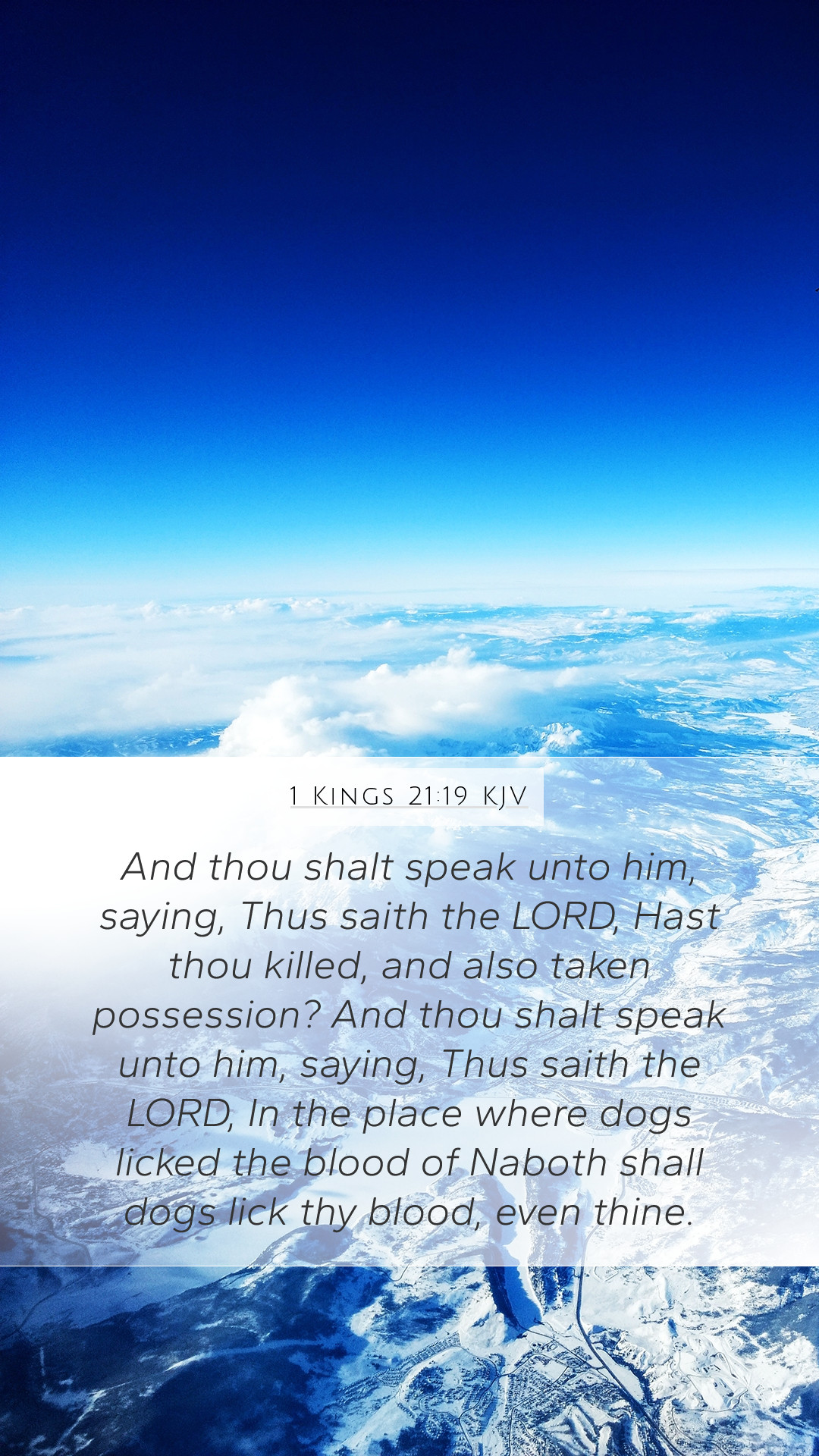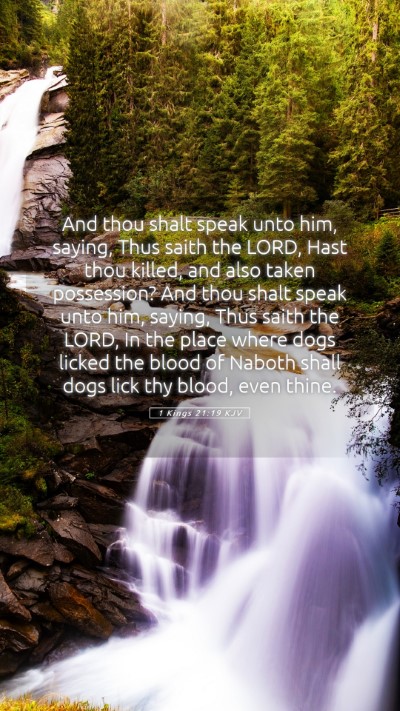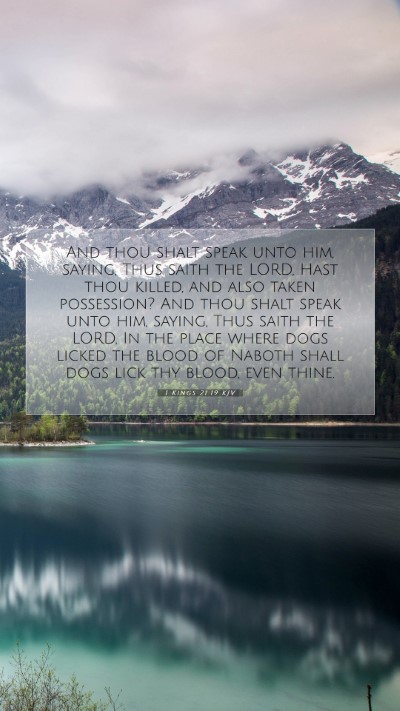Understanding 1 Kings 21:19
Bible Verse: 1 Kings 21:19 (KJV) - "And thou shalt speak unto him, saying, Thus saith the LORD, Hast thou killed, and also taken possession? And thou shalt speak unto him, saying, Thus saith the LORD, In the place where dogs licked the blood of Naboth shall dogs lick thy blood, even thine."
Overview
This verse is situated within the account of King Ahab's grievous sin against Naboth, which included murder and theft. 1 Kings 21:19 serves as a declaration from God delivered by the prophet Elijah, showcasing divine judgment and the serious repercussions of Ahab's actions.
Bible Verse Meaning
The meanings derived from various public domain commentaries can provide profound insight into this scripture:
- Matthew Henry’s Commentary: Henry emphasizes that the divine message indicates God’s justice. Naboth, who was wronged, receives the ultimate vengeance as Ahab's judgment is pronounced. The dogs licking Ahab's blood stands in stark contrast to the honorable burial that Naboth deserved. Henry views this as a sobering reminder of the consequences of sin, especially for those in positions of authority.
- Albert Barnes’ Notes: Barnes elaborates on the implications of God's judgment here. The language used highlights both the stark reality of Ahab's crime and God's unwavering justice. His interpretation reinforces the idea that the divine does not overlook evil deeds, especially those that exploit the vulnerable.
- Adam Clarke’s Commentary: Clarke also reiterates the gravity of Ahab’s sin and the dark irony in the prophecy. He notes that the prophecy explicitly ties into the manner of Naboth's death and the fate of Ahab, with the dogs' behavior symbolizing shame and disgrace. Clarke’s analysis focuses on the public nature of Ahab’s punishment in light of his public sins.
Key Themes in 1 Kings 21:19
- Divine Justice: The prophecy serves as a culmination of God’s justice specifically aimed at wickedness and oppression. The scripture stresses that no sin is hidden from God's sight.
- Moral Accountability: Ahab's accountability to God highlights the principle that leaders, in particular, must act righteously. Their actions influence others and have spiritual consequences.
- Retribution: The idea of retribution is vividly illustrated here. The fate of Naboth juxtaposed with that of Ahab demonstrates that wrongdoing has a way of returning to the offender.
Cross-References
Related scriptures that illuminate the meaning of this verse include:
- 2 Kings 9:36-37: Continued fulfillment of Elijah’s prophecy regarding Ahab's demise.
- Proverbs 21:15: Discusses the joy of just judgment for the righteous and types of consequences for the wicked.
- Isaiah 34:3: A picture of divine justice as divine vengeance upon the earth for wickedness.
Conclusion
The analysis of 1 Kings 21:19 reveals the importance of understanding scripture through historical and moral lenses. This verse serves as a testament to God's judgment regarding unrighteousness, urging us to reflect on the weight of our actions and their repercussions both in life and eternity.
Further Insights for Bible Study
For those engaged in Bible study groups or online Bible study, this verse invites in-depth discussions on the nature of sin and the character of God as just and holy. Application of this scripture can lead to meaningful lessons on accountability in leadership and personal morality.
Additional Study Resources:
- Look for Bible study guides that delve into Old Testament narratives.
- Engage with Bible study tools that offer commentaries and verse mappings.
- Consider Bible study lessons focused on the theme of justice and mercy in scripture.


